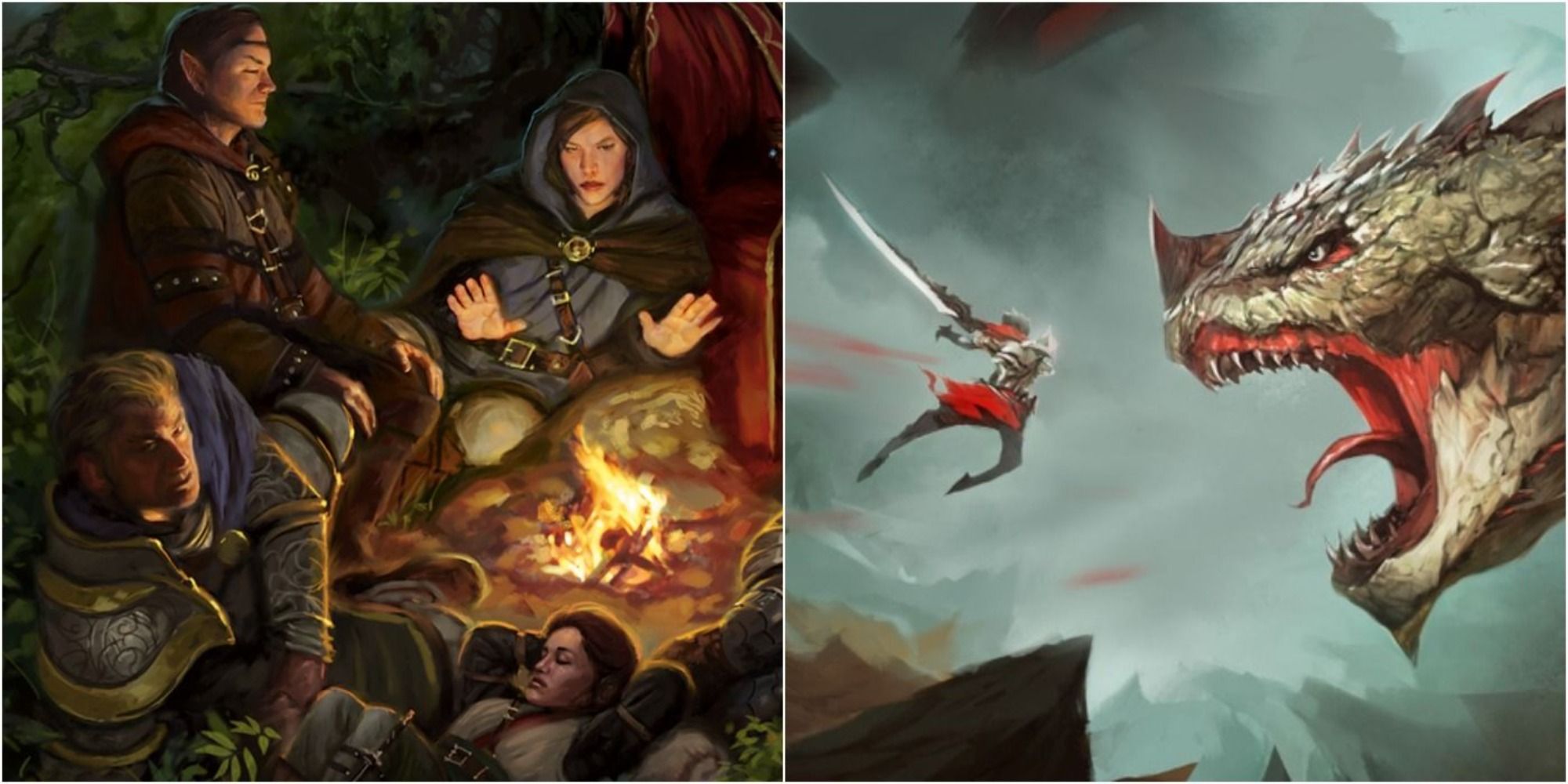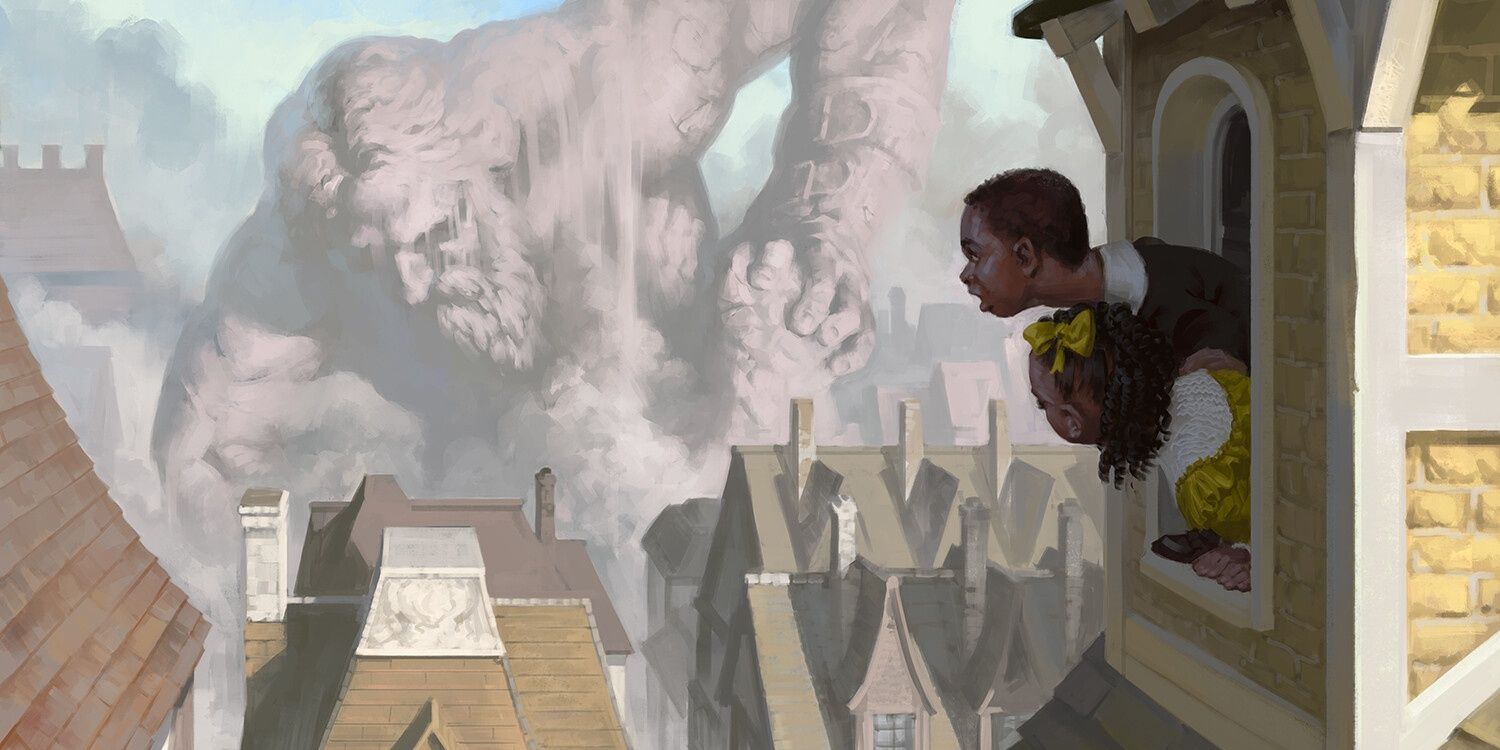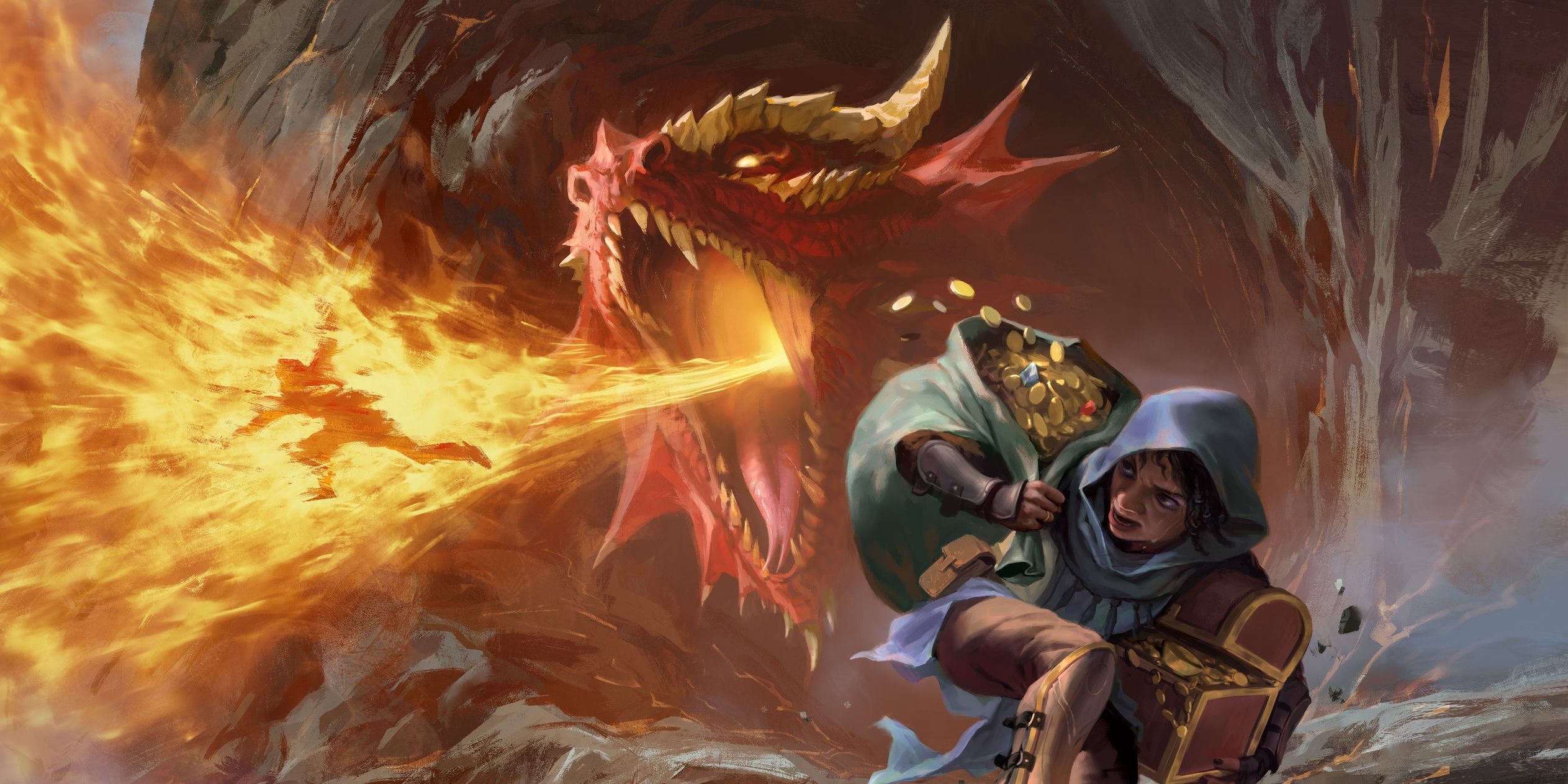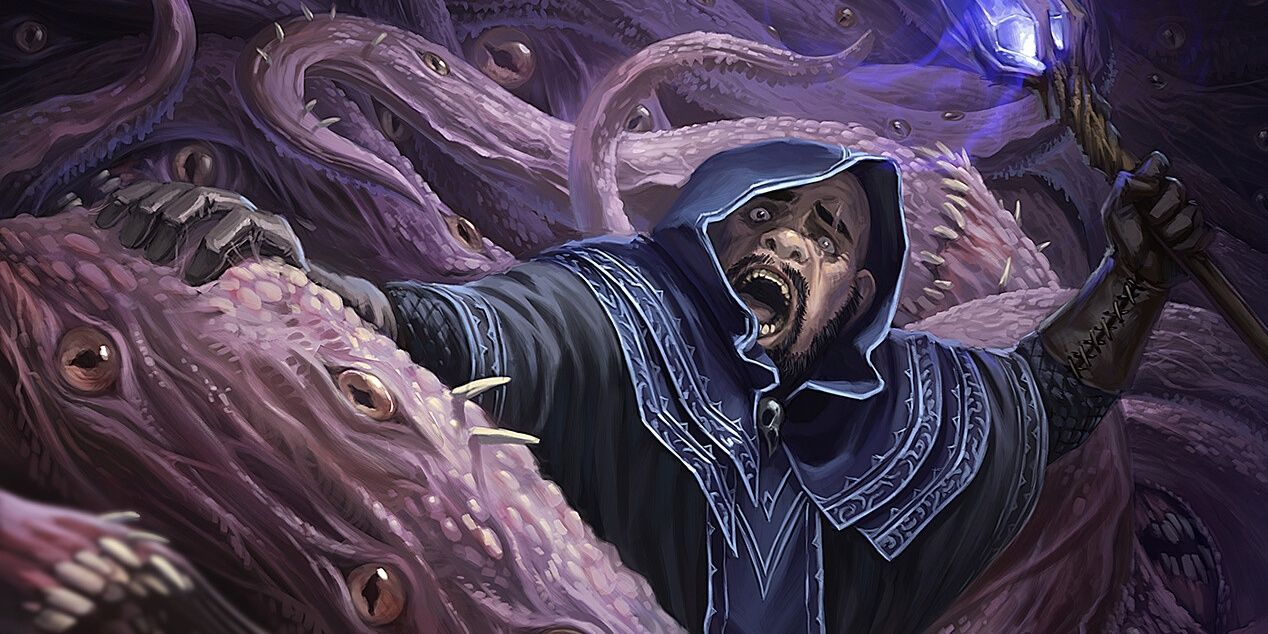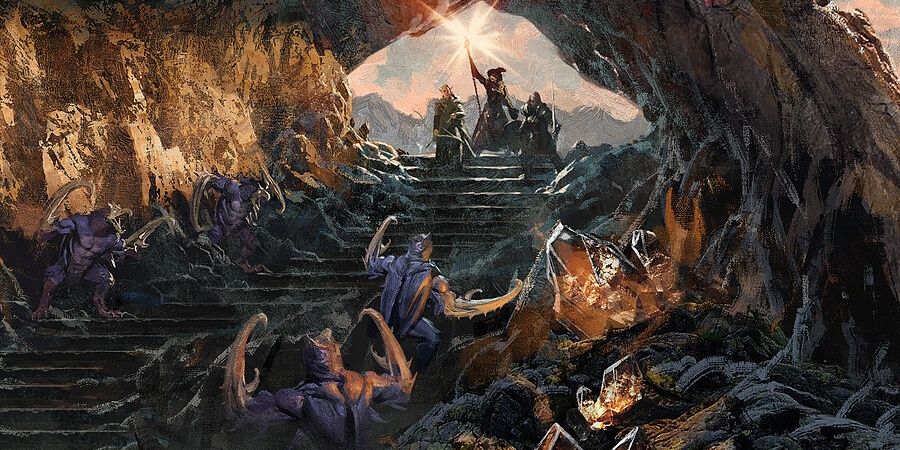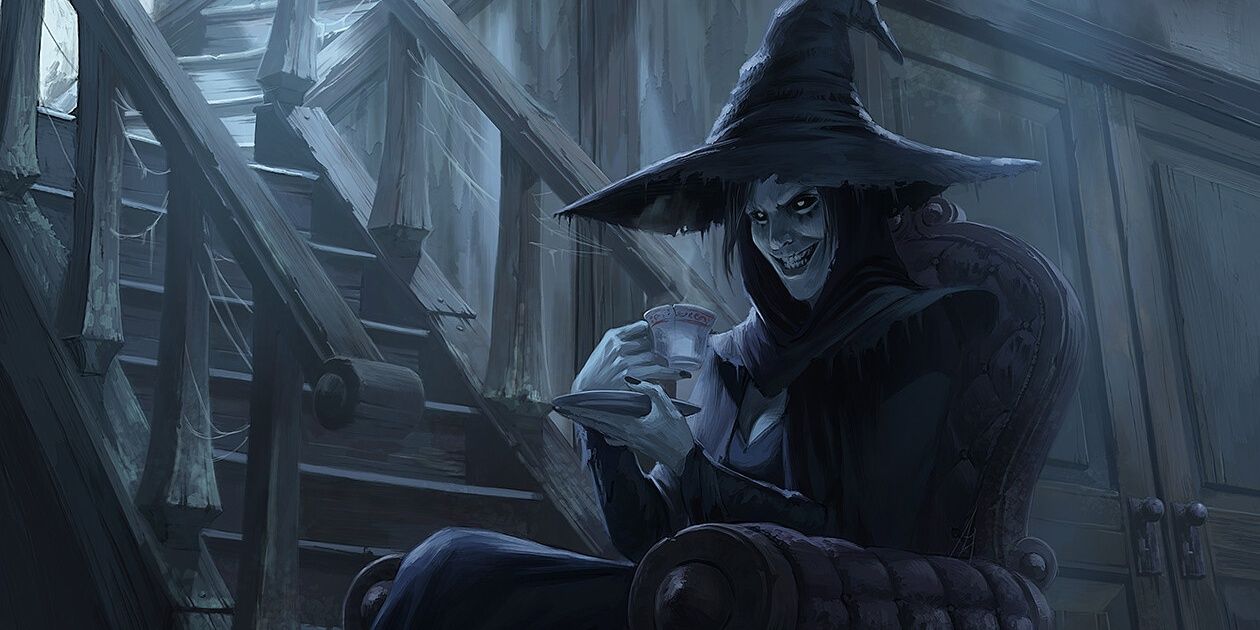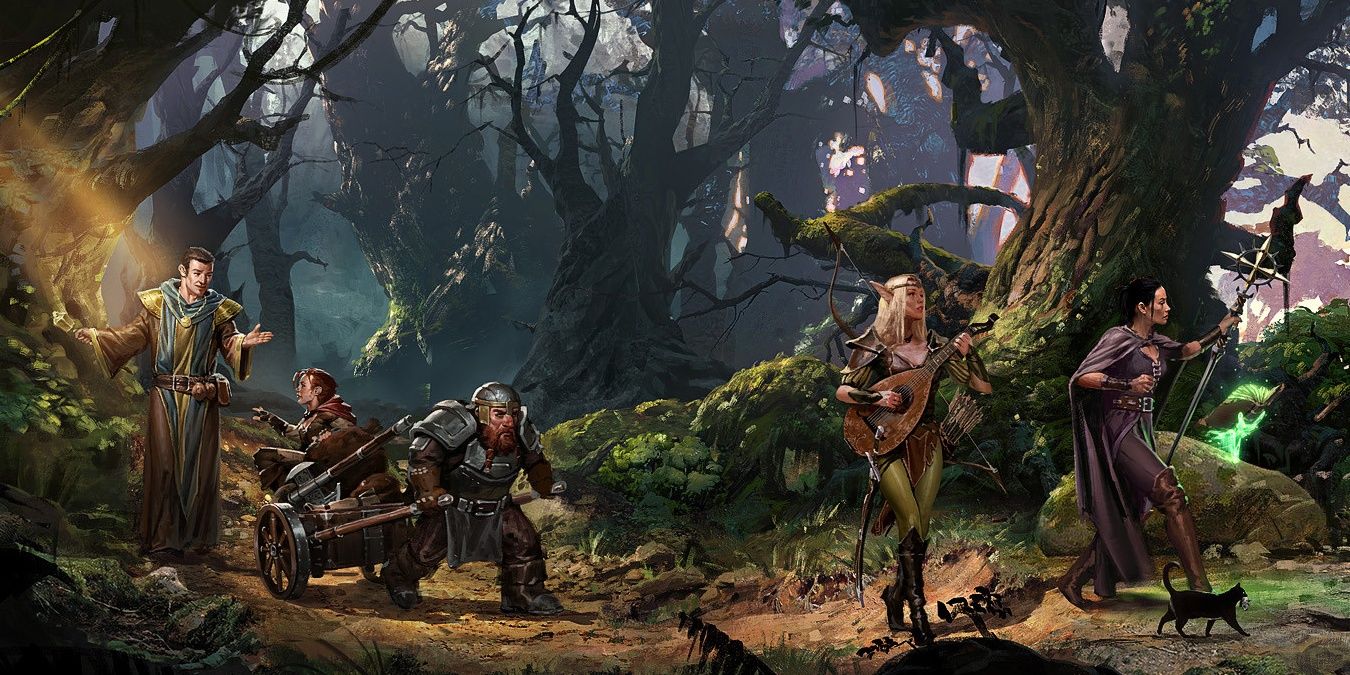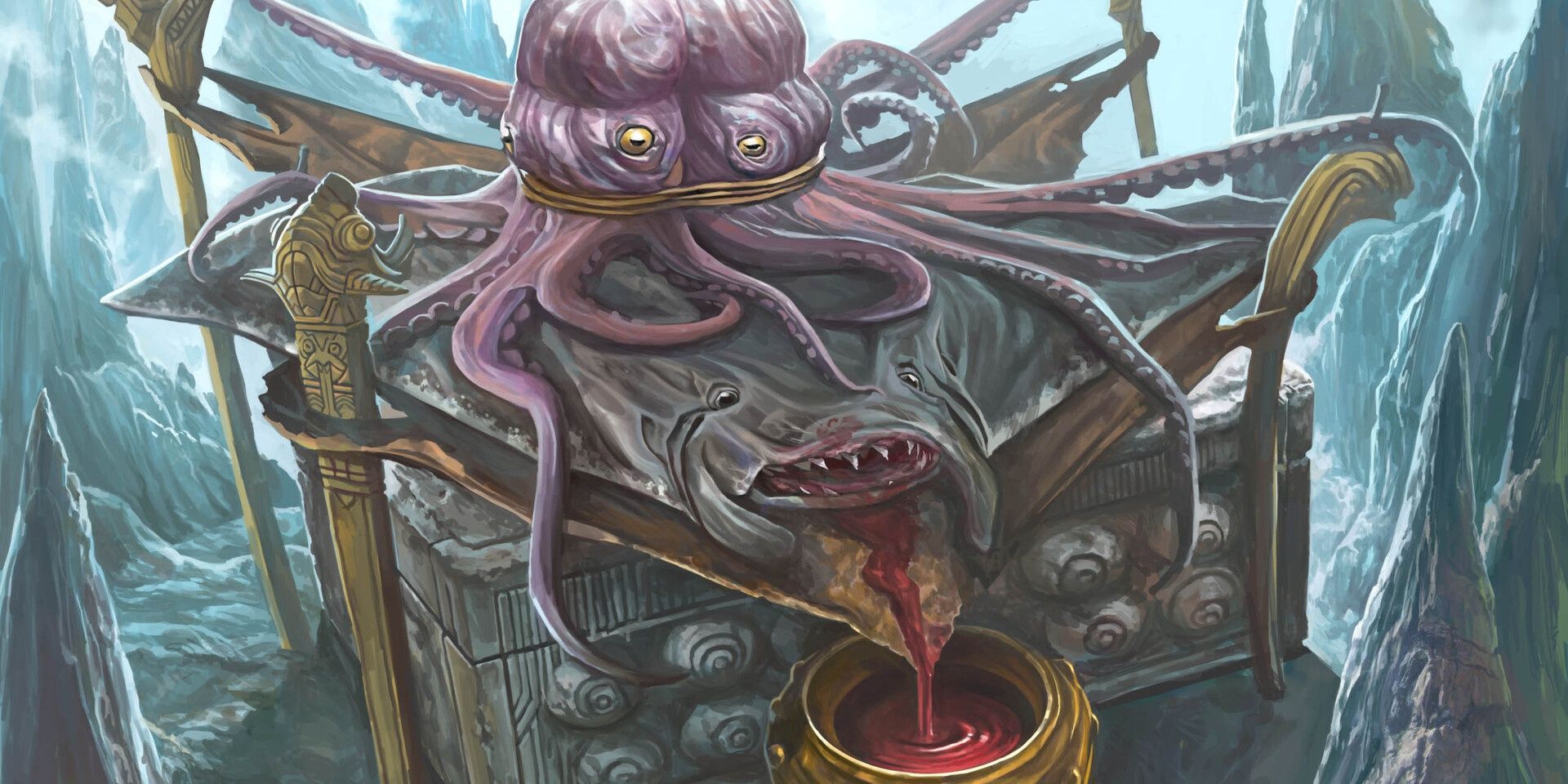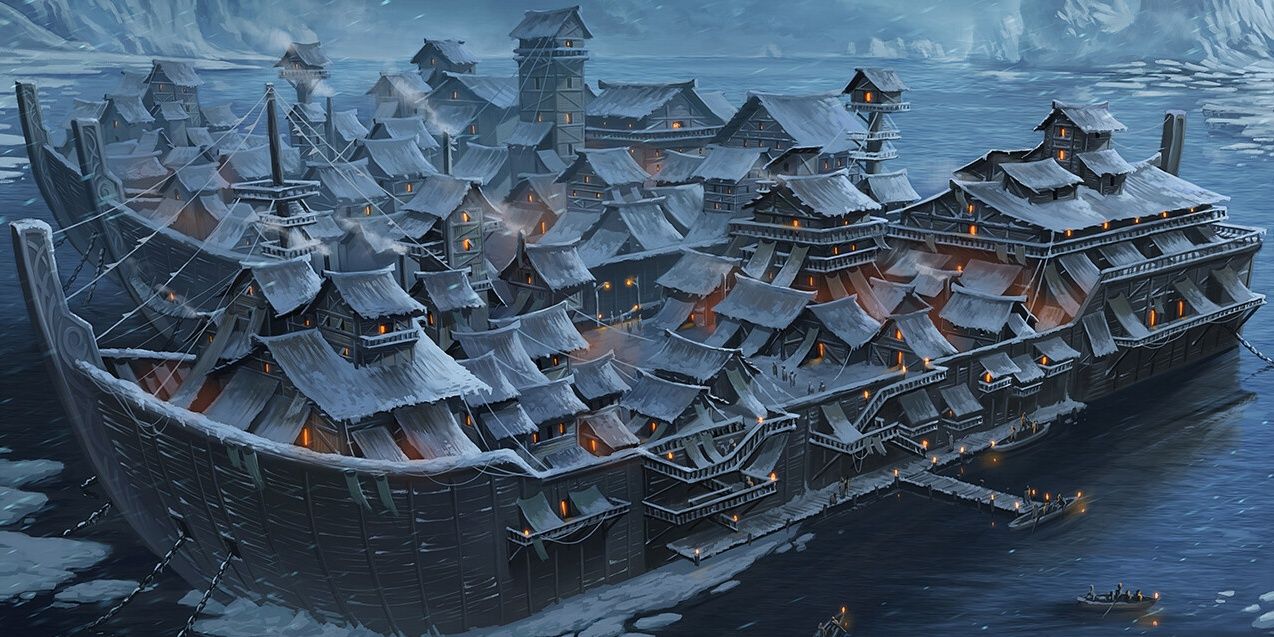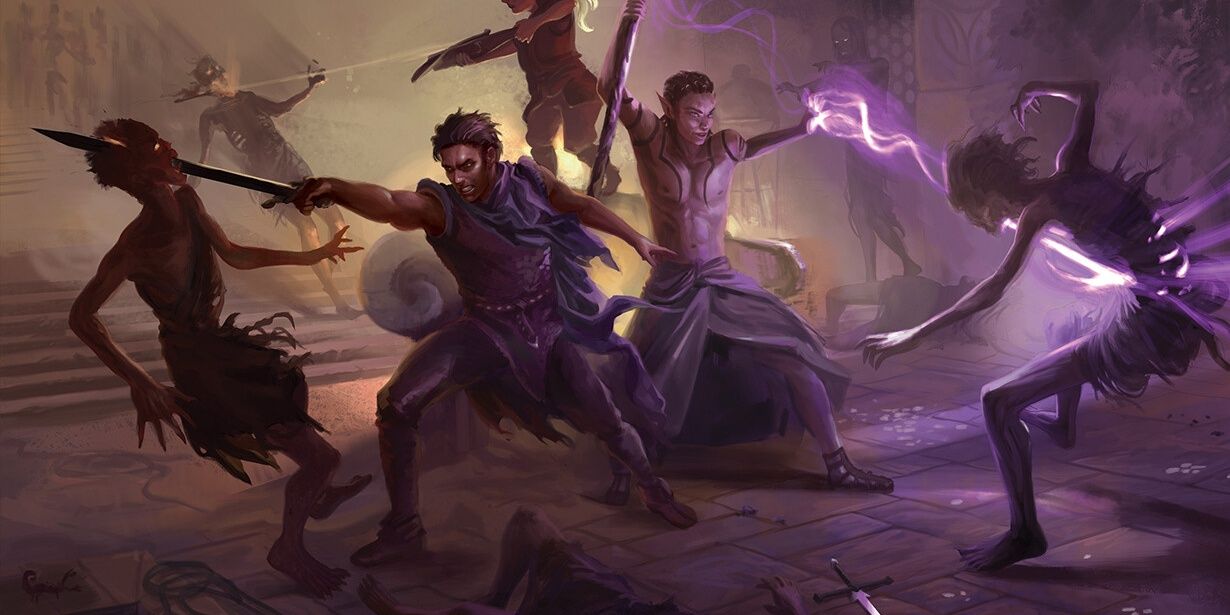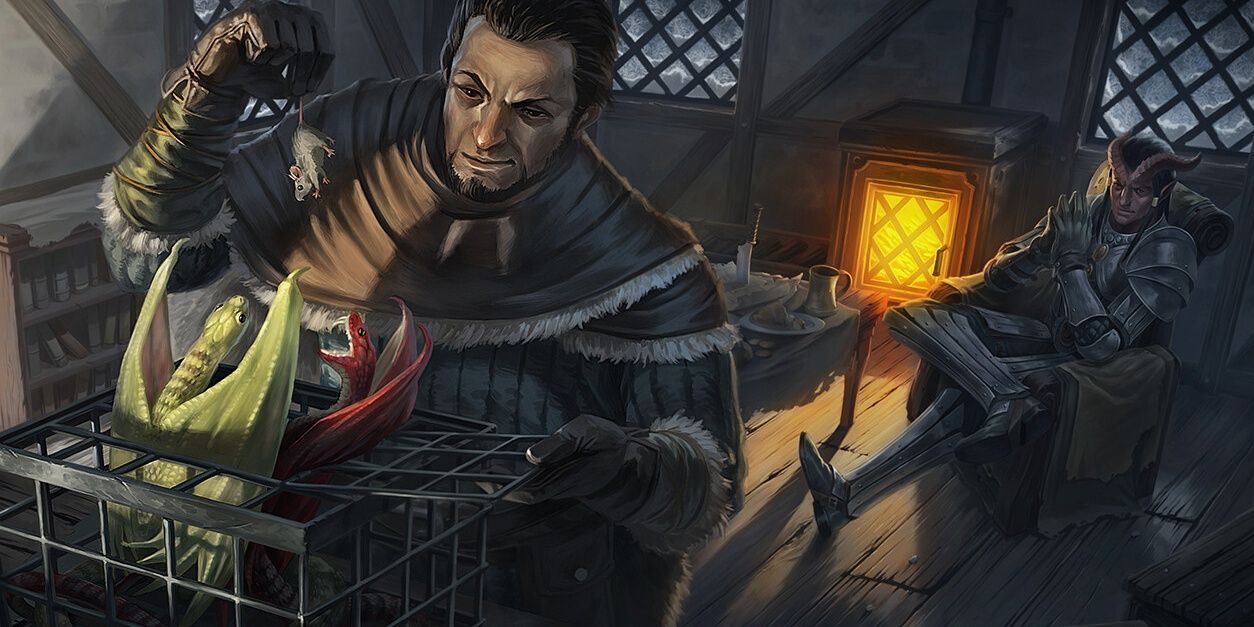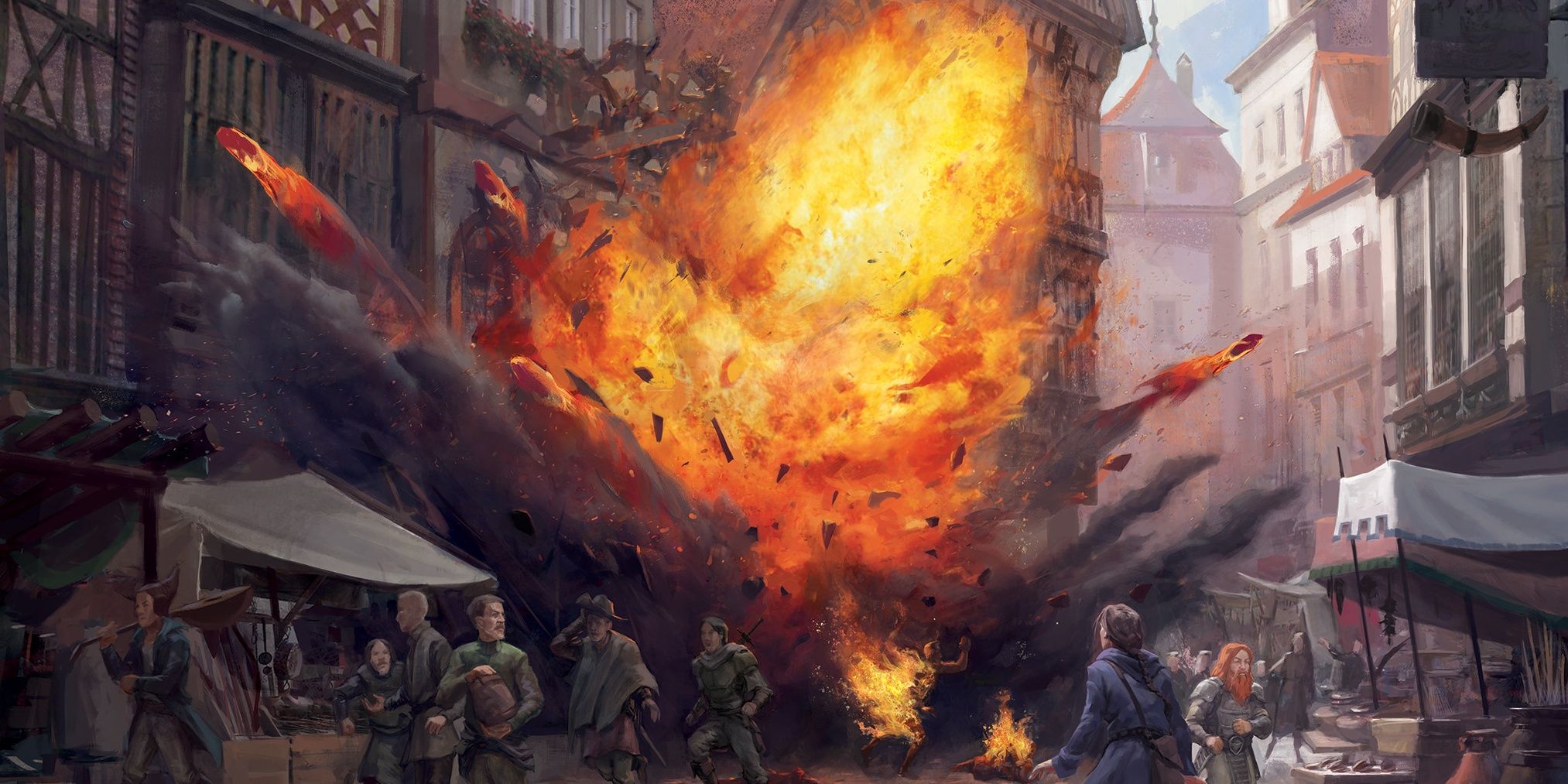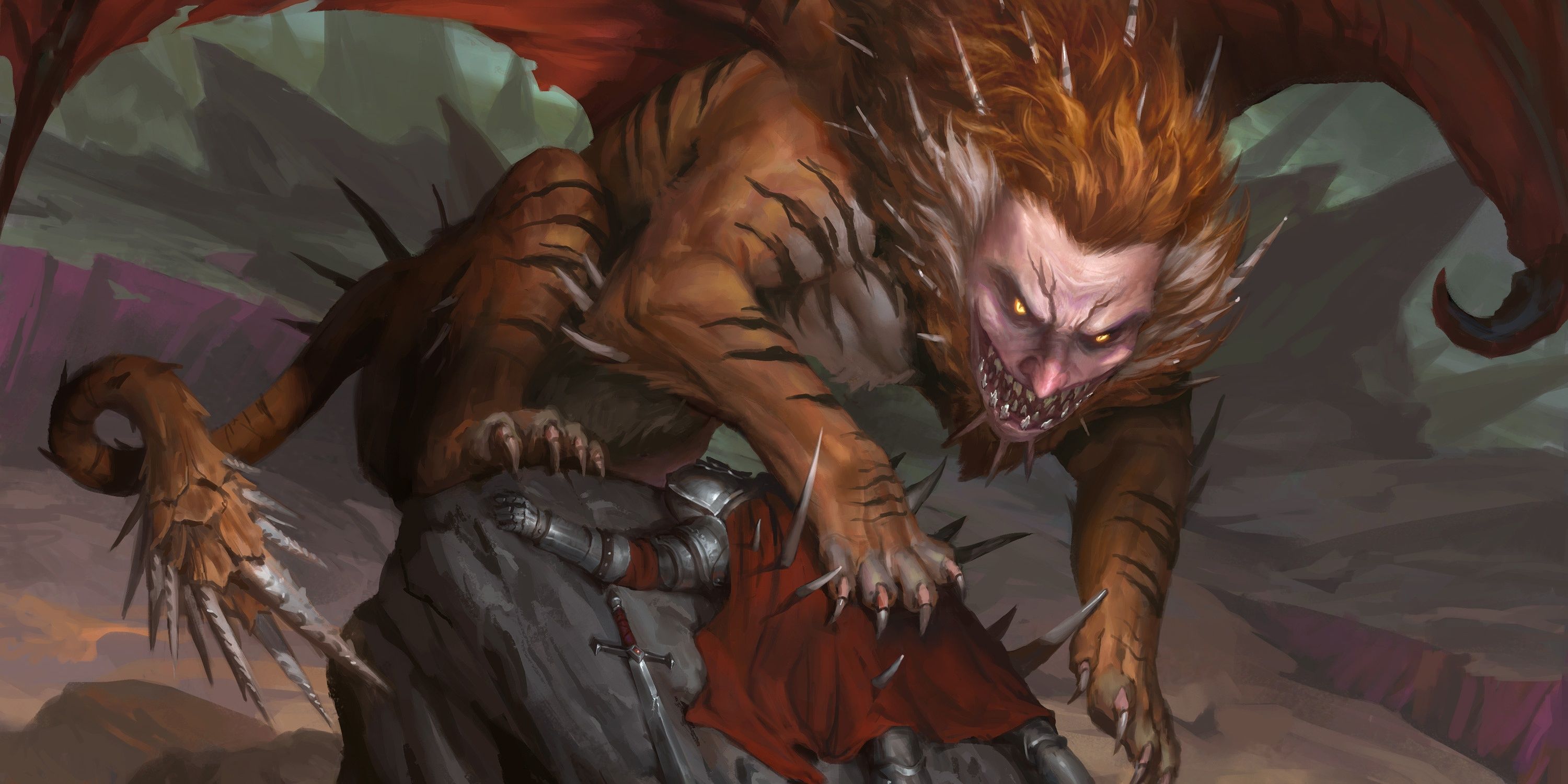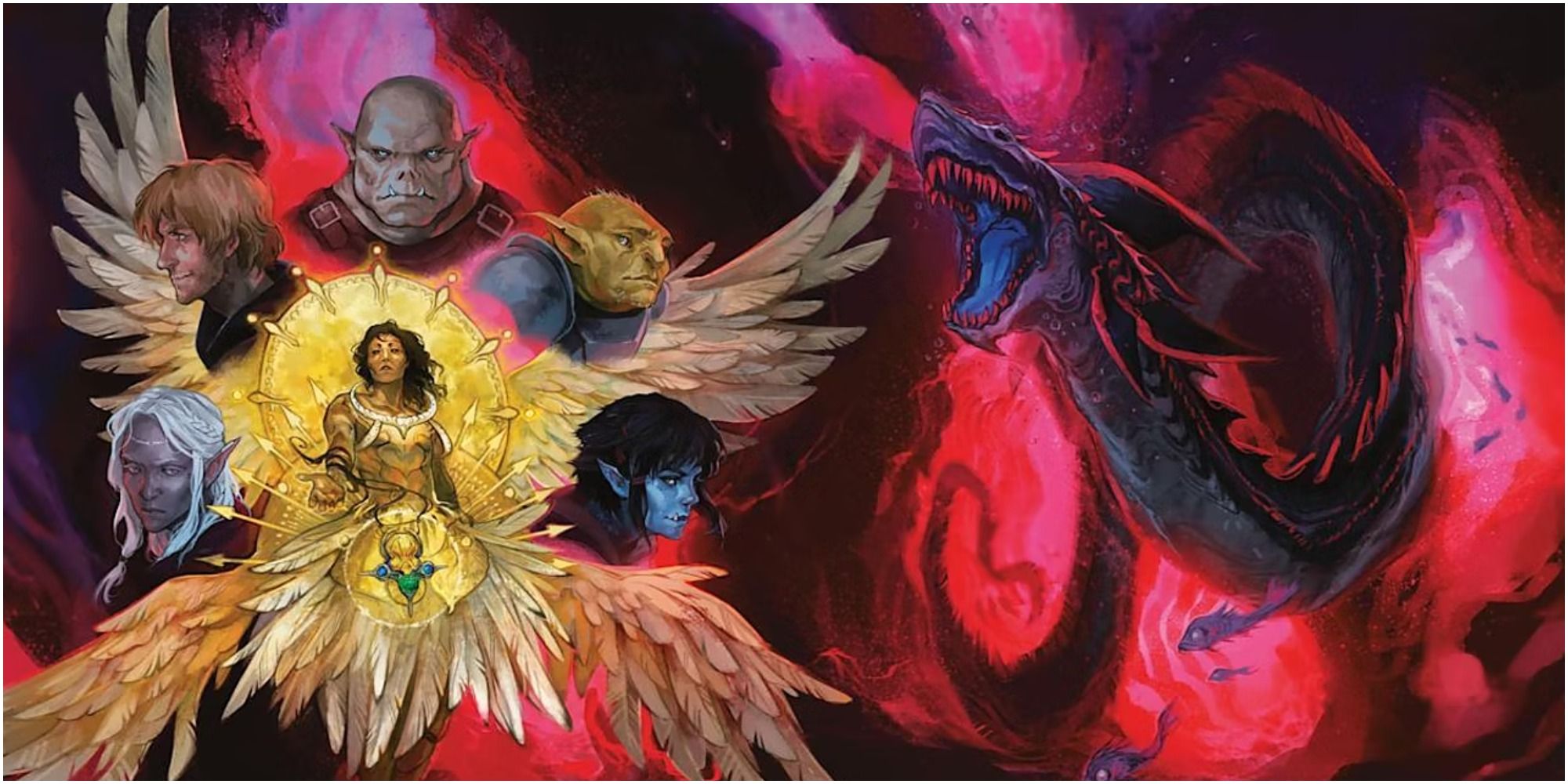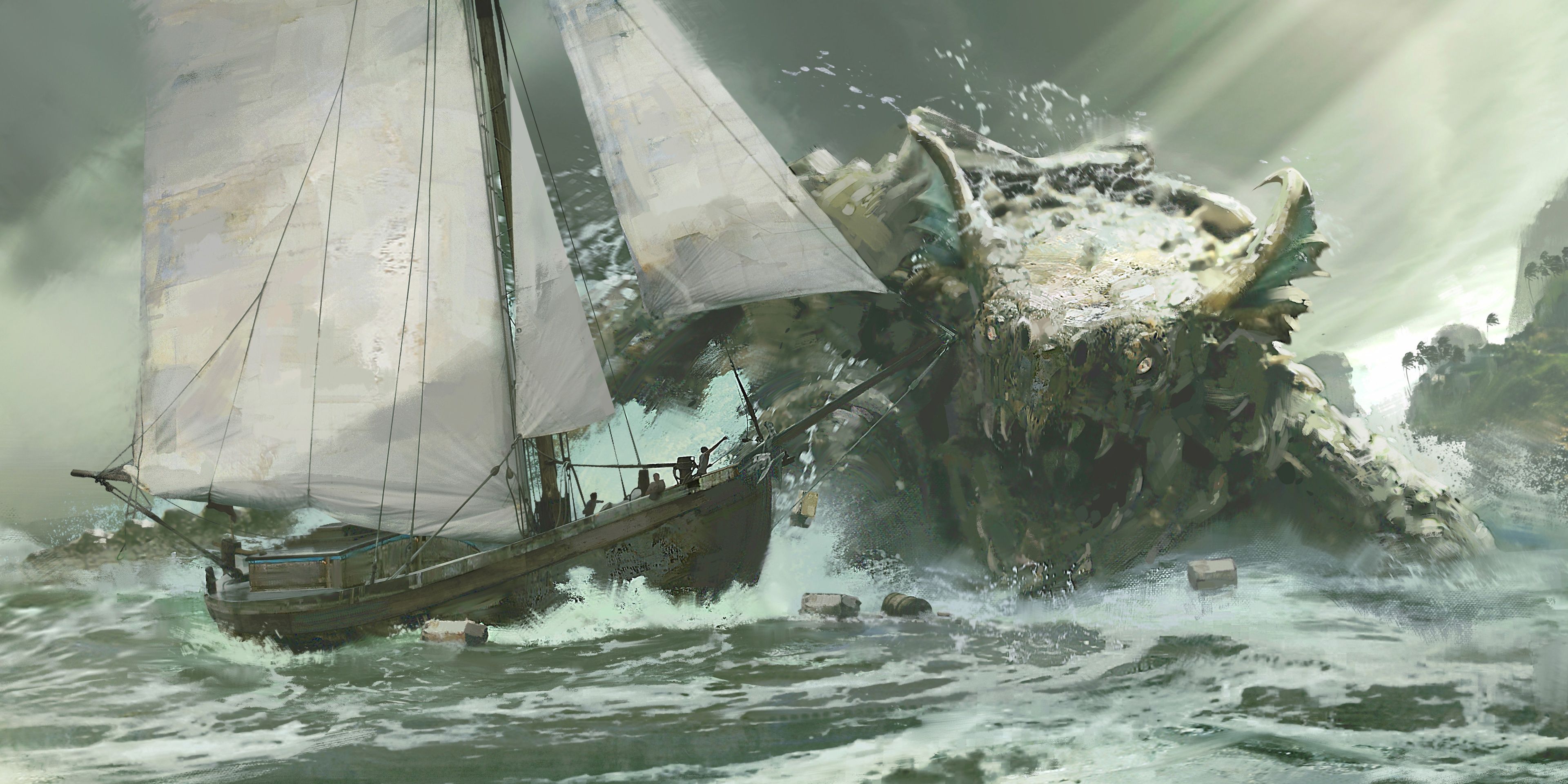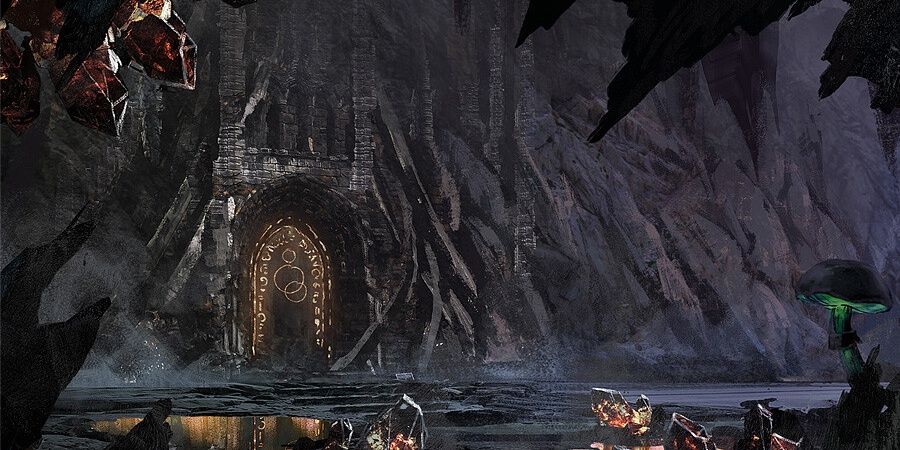The beginning of a new Dungeons and Dragons campaign is a beautiful thing. Whether the players and dungeon master are battle-hardened D&D veterans or bright-eyed newbies, every great campaign should start off with a bang. An event that's memorable for everyone at the table and that draws the player characters together as a party.
With a little luck and a lot of scheduling, these newly forged PCs will be spending no small amount of time together, so it's important to start off on the right foot. A good first session isn't so much about the overarching story as it is about the player characters at the center of it and their relationships with one another. Here are ten scenarios that will hopefully prod players towards teamwork. Granted, they don't all die in the very first session.
Updated May 17, 2022 by Chris Stomberg: It has been years since we first visited this topic, and there's no question that more than ten great ways to start a campaign exist. With the coming release of Spelljammer, as well as the growing popularity of fan-created settings like Critical Role's Exandria, there's never been a better time to wet your feet in homebrewing your own campaign. In order to homebrew successfully, though, you're going to need to start your game off with a bang. For DMs old and new, it's time we take yet another look at the best ways to get your D&D game rolling.
15 Get Out Of Dodge
One of the best ways to start a campaign is in the middle of the action! The PCs (Player Characters) are currently being pursued by the local guard, a gang of thieves, a den of owlbears, or maybe even a pirate fleet! Whatever is chasing them, the PCs aren't powerful enough yet to face it head to head, so instead, they've got to get out of dodge.
A chase like one of these examples is an exciting way to kick off any game and immediately provides foreshadowing for a villain that your PCs will likely face in the future. Additionally, it is sure to impress your players with the use of an amazing game mechanic that many DMs fail to employ.
14 Pilfered And Plundered
Speaking of gangs of thieves and chases, another good way to start off a campaign, and for the same reasons, is to have the players chasing after someone who has stolen from them. It should be mentioned that whether the PCs are the ones doing the chasing or the ones being chased, this is a grand opportunity to involve player backstories.
The item that was stolen could be a deed to a parcel of land that a PC owns, a family heirloom, a spellbook, or some other piece of equipment that's important to a character's backstory. If you happen to take this route, be sure to speak with the player whose character you are stealing an important item from beforehand. Otherwise, you might end up with some sore feelings.
13 Doomsday Cometh
It's another lazy day in the backwater town of Riverdwell. Or, at least, it was until an interstellar gateway opened up above the village and a spaceship looking like a shell with tentacles coming out of it. Departing the ship is a small contingent of mind flayers who effortlessly levitate above the startled townsfolk. They come to deliver a prophecy: in one year's time, they will return and enlighten all of the townsfolk present by turning them into members of their colony. Whether it's mind flayers, demons, apocalyptic mages, or something else entirely, opening the campaign with a message of impending doom provides the players with a timeline to prepare to face their most dangerous BBEGs (Big Bad Evil Guys).
It also leaves them buzzing with unanswerable questions. For instance, why have these mind flayers come? Why do they want the citizens of the town of Riverdwell? Why didn't they just "enlighten" everyone now? What do they have to gain by warning of their future visit? This is a great introduction for players who love a good mystery and provides the DM with an event to which they can offer clues for the entirety of the campaign.
12 Student Becomes Teacher
The PCs are the bright young pupils of a current or previous group of heroes who already left their mark on the world. Unfortunately, they have recently stumbled upon the secreted-away knowledge that the group of heroes they serve isn't exactly everything they were chalked up to be. This is a storytelling device recently popularized by superhero shows like The Boys and Invincible.
While the world looks on at this group of heroes as saviors of humanity, the PCs know the truth: these so-called saviors are complete monsters. Whether the PC's mentors or heroes have always been monsters, became villains after many years of adventuring, or were recently subjugated after their defeat by an evil power, this motif works perfectly to set the stage for an intriguing campaign.
11 In Dreams
Here's yet another campaign opener that adds a high level of mystery to the campaign. In this introduction, the PCs have all had dreams that feature each other's characters. The dreams might have started only recently, or the characters might have been plagued by these dreams for most of their lives.
This campaign starter works even better if some of the player characters are complete strangers to one another when the dreams first began. After all, how can someone who you have never met appear in your dreams? Surely, there must be a reason for these repeated late-night visions . . .
10 Ambushed While Traveling
The beginning of many great stories follows the rule of in media res, Latin for "in the midst of things." Placing your players onto the same wagon, train, boat, or skyship forces them to introduce their characters to one another. Furthermore, new players who might be shy can be nudged for information by a curious NPC that's traveling alongside the adventurers.
Once introductions have been made, or maybe even before that, have the means of travel ambushed by bandits, goblins, or other evildoers. The following combat will give players a dash of action as well as a moment to work together and prove themselves to their new friends.
9 Party Of Prisoners
Widely known as a common introductory plot device from the Elder Scrolls games, starting the party out as prisoners gives them no other option than to work as a team. Outgunned and outnumbered, the players will need to lean on one another's skills and ideas in order to escape from their present dilemma.
A prisoner opening might be somewhat cliche at this point, but there are not many better ways to establish camaraderie than mutual suffering. Plus, the act of devising an escape plan gives the player characters a ton of agency right from the get-go.
8 The Tavern
Speaking of cliches, here's the most popularized introductory campaign start in all of DnD. The player characters all arrive at a tavern during the same evening and come to know one another over drinks and conversation. Experienced players might be able to make this start work wonderfully, but your average player isn't quite so skilled at role-play to be able to fashion a scene from this simple setting.
The tavern can be a great way to start a new campaign, but be wary of expecting the players to do all the introductions themselves. An NPC who knows each of the players personally or a raucous event like a bar fight will most likely be necessary to make this a start your players will remember.
7 Political Meltdown
Establishing what players want out of their campaign is an important step in starting a campaign for many reasons. It could even influence what the beginning of the campaign looks like! Players who are more interested in a story of political intrigue might enjoy having their characters take part in the event that led to the political meltdown upon which the entire campaign is based.
Perhaps they were soldiers in a war of allied armies when one suddenly turned on the others. Maybe they were members of the town council meeting that led to anarchy across the realm. A great triggering event will see the players come up with how their characters were involved on their own.
6 Help Wanted
In the midst of all the shenanigans that occur on your average adventure, it's often easy to forget that adventurers often begin their adventurers for one simple reason: to get paid. Sometimes the beginning of a new campaign can be as simple as introducing the party's first quest. Whether through a poster board of requests and payment amounts or an NPC in dire need, placing an obvious quest in front of willing adventurers is like luring a bear with the scent of honey: it's only a matter of time before they take the bait.
As for how the players all ended up on the same quest, that's a question they can choose to answer themselves. And if they never get around to it, so what? People don't explain their backstory and motives to complete strangers anyways.
5 Catastrophe Strikes
A meteor falls from the stars, crashing smack dab into the center of the biggest city in the realm. A portal in the sky suddenly rips open, revealing a hellish landscape beyond. Demons pour from the portal and begin wreaking havoc across the land.
Whatever the catastrophe, playing out the event and the player character's immediate responses to it during the first session can be a great way to hook players into the core conceit behind their game.
4 Seeking Favor
Who doesn't want to have friends in high places? If the campaign is set in a feudal or caste-based society, this introduction becomes all the more powerful. Perhaps a local lord needs something handled quickly and quietly or wishes to interfere in a competitor's plans without ever being implicated.
As with the help wanted campaign start, seeking favor derives its power from the core conceit behind life as an adventurer: everyone's got bills to pay.
3 Friendly Competition
Nothing like a little friendly competition to get players immediately invested in the game. Be warned, this start can push players in the wrong direction if they're especially new to D&D. After all, the party is supposed to work together in most cases, not against one another.
That being said, a friendly competition such as a race, a contest of strength, a magic show, or even a duel is interactive for everyone at the table. One way to prevent players from going for each other's throats too hard is to present an NPC as a common enemy.
2 A Long Time Ago . . .
As with the political meltdown, "a long time ago" focuses the session on an explanation of the issue at the center of the campaign. Many popular books and movies use this introduction to add a level of mystery and intrigue to the opening sequence. This introduction is a bit more difficult to work into a D&D game, but it can be done.
Have the players act as NPCs important to their player characters during the event that defines why the real player characters teamed up. For example, one PC could play a father who aided in sealing away an ancient evil but lost his PC's mother in the process.
1 The Chosen
One of the most refreshing things about a new campaign is the return to player characters who aren't overwhelmingly powerful. They are just folk who are a little more capable than your average human being. But who are we kidding? Most of these player characters will become powerful enough to rival the mightiest foes.
In a world full of deities, one of these all-powerful beings is sure to see the potential in each player character, and may even notify them of their potential and how they might best put it to use. This introduction may feel a bit on the nose, but the player characters are the protagonists of the game. So, why try to pretend that's not the case?

